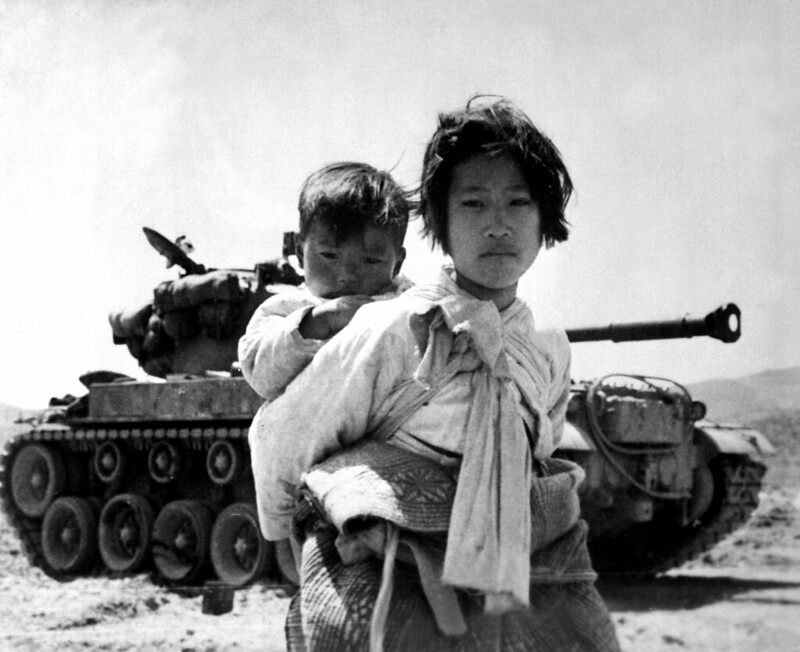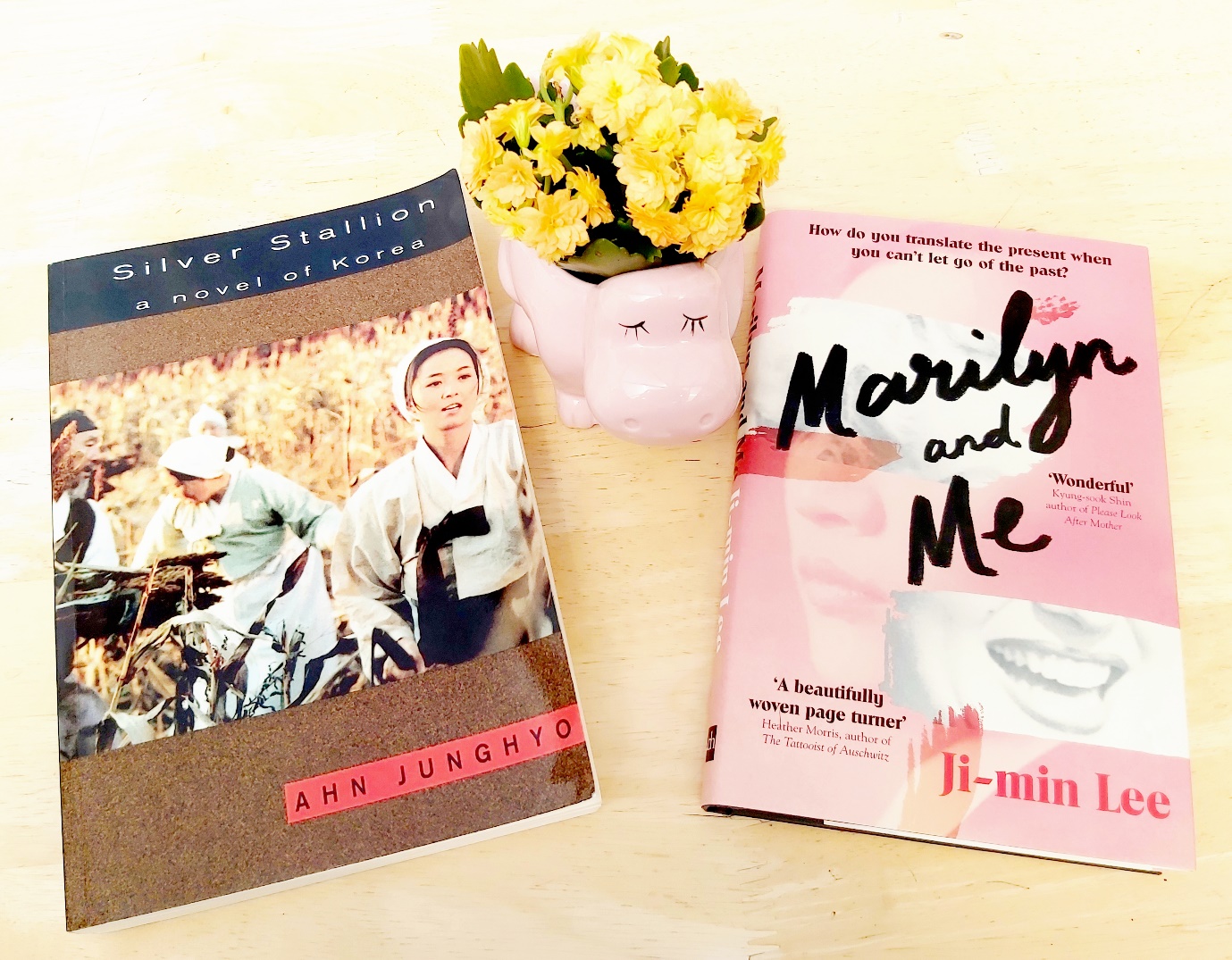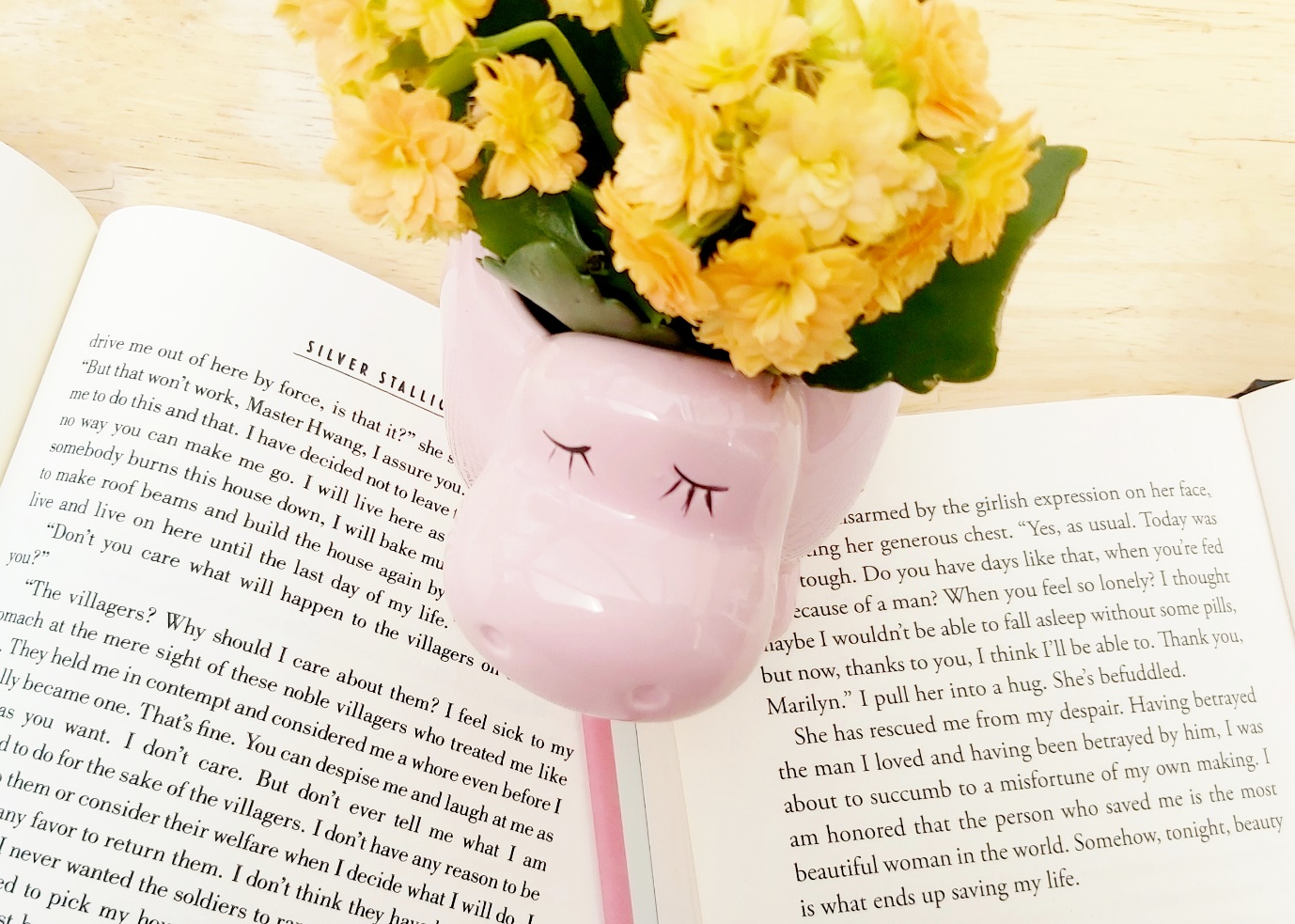By Honorary Reporter Marianna Szucs from Hungary

(The U.S. Forces Korea)
To mark the 70th anniversary of the outbreak of the Korean War and commemorate the often-ignored role of women in the conflict, this article focuses on two female characters in Korean literature. They are extraordinary survivors of the war and symbolize what millions of other Korean women might have undergone during the so-called Forgotten War.
Ahn Junghyo's novel "Silver Stallion" tells of how life for a poor widow in a peaceful rural village turns upside down after the war breaks out. Ollye relies on the mercy of her employer, but later must learn how to become independent after being sexually assaulted by two American soldiers. Her village considers her an outcast after the assault.

(Marianna Szucs)
Around the same time the American army appears in the village, prostitutes arrive as well, foreshadowing Ollye's fate. After initially experiencing shock and shame, she pulls herself together surprisingly quickly and provides for her two children. She might be considered lucky after receiving an opportunity almost instantly after being left with no emotional or physical support from the villagers. The path she takes, however, leads to even more disgrace and rejection from society and requires her to tap enormous inner strength both emotionally and physically.
The author portrays Ollye's journey with a brilliant and engaging style in showing how difficult it was for her -- a simple villager who follows unspoken rules -- to enter an entirely unknown world. Though her doubts and fears are visible, her decision seems natural. Despite sensing her son's disapproval, Ollye continues to entertain soldiers but in the process plans a better life for her family. The climax of her transformation occurs after she endures months of inner exile, being cautious and mindful of others, and suffering from constant humiliation. She confidently confronts the village leader and residents. Acting like a true hero, Ollye refuses to take any more blame and calls out the village to take responsibility for what they did to her.
In Ji-min Lee's "Marilyn and Me," the protagonist Alice, whose Korean name is Ae-sun, is an educated, ambitious, self-confident and urban woman before the war. As an interpreter and typist for the U.S. military base in Seoul, she interprets for actress Marilyn Monroe while the latter performs for soldiers in Korea. Readers gradually learn of the reasons behind Alice's self-blame and extreme anxiety as the story evolves. Though not a victim of rape, she experiences horrors from the war that causes emotional turmoil and insecurity.

(Marianna Szucs)
She is haunted by memories of betrayed love, forced labor, death and "killing" an important child while escaping from the war across a desolate Korea. Her monotonous but stable job helps her keep her mind off the war and her sins but does not heal her. Juxtaposing her self-hate and emotional apathy with Monroe's bubbly joy and optimistic personality, Alice rediscovers hope, her will to live and her long-lost creativity.
The author's powerful and cinematographic style of storytelling with flashbacks gradually shows how Alice builds a strong and towering wall around her. This enables her survival until she is forced to join a dangerous secret mission to lure a spy. Her past reemerges but instead of running away, Alice bravely faces her unforgivable actions and deepest fears while discovering an unimaginable betrayal. Similar to Ollye, Alice stands up for herself and unchains her tortured soul; she makes a decision that she ultimately does not regret. Her pure and beautiful friendship with the actress Monroe and act of facing her demons instead of suppressing them turn Alice into a confident woman ready to trust and create art again.
Through Ollye and Alice, readers can see the inner struggles and the physical battles these women go through while being forced to stay silent, remain almost invisible to society and process their trauma alone. The war bombards them with inconceivable suffering and throws them into forced or voluntary solitary confinement. In either case, they learn to live again without constant shame and blame after having their souls and voices heard and understood.

(The U.S. Forces Korea)
The two characters pay tribute to the voiceless heroes who were among millions of women during the Korean War. Carrying a weapon does not make a hero. Keeping a family together, fighting starvation, overcoming a mental meltdown and finding oneself again in a crumbling world require as much resilience and bravery as executing a strategic maneuver on the front line. Neither woman can stay in the shadows forever as remaining silent cannot promote healing. The women of the Korean War need attention as strong, confident and proud people. Most importantly, they must be remembered and honored like their male counterparts.
chaey0726@korea.kr
*This article is written by a Korea.net Honorary Reporter. Our group of Honorary Reporters are from all around the world, and they share with Korea.net their love and passion for all things Korean.